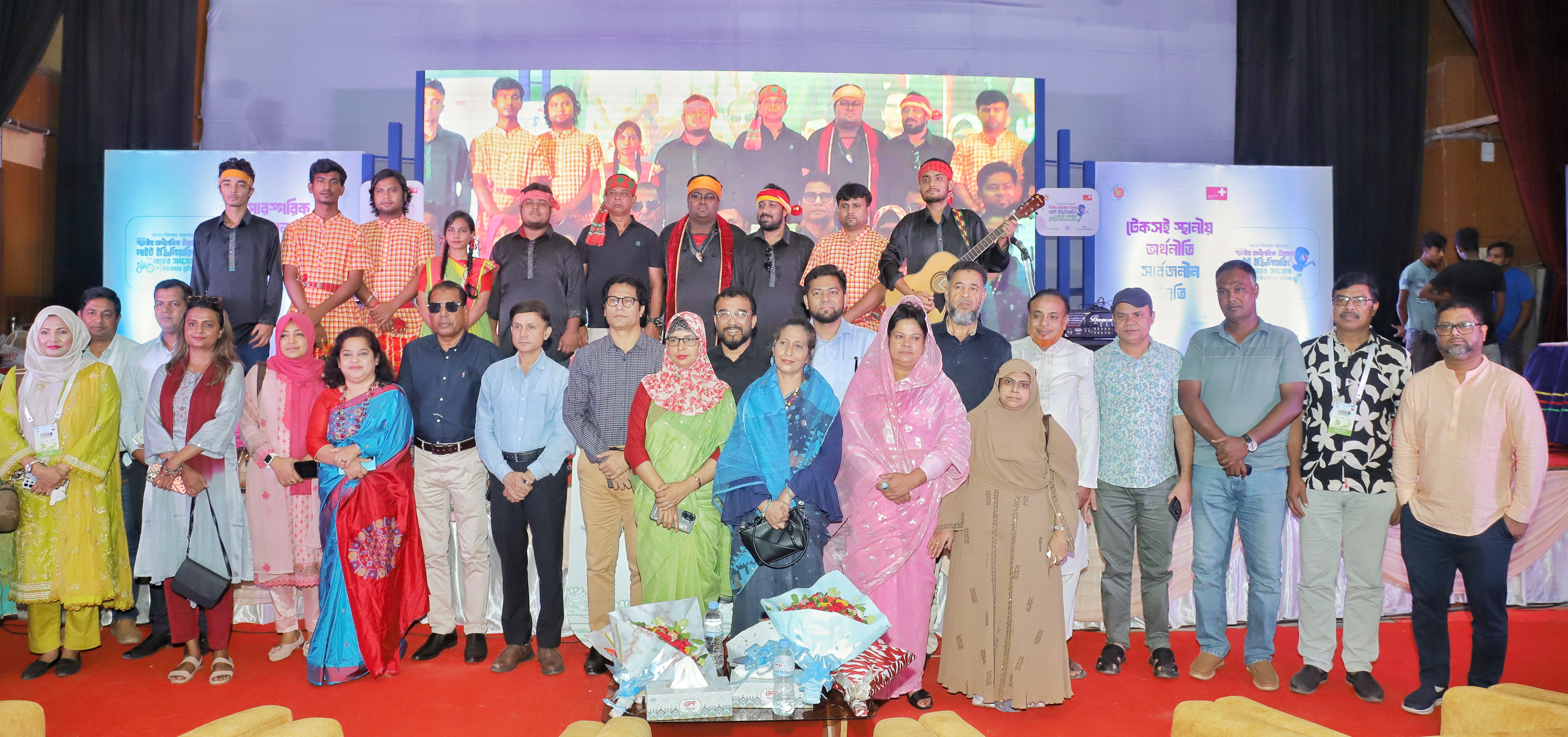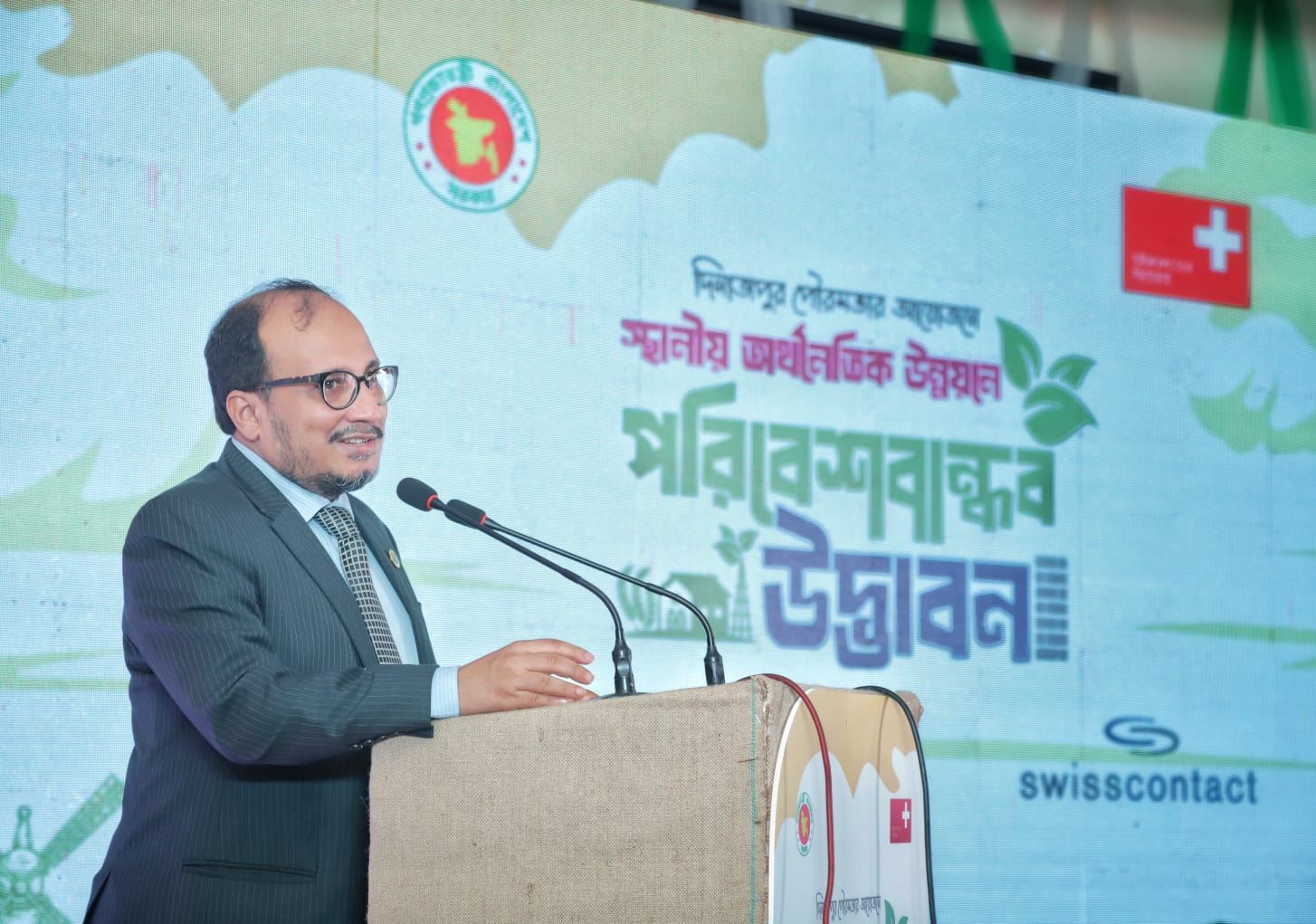
To recognise the rural women and girls' vital role in global food systems, this year's theme of International Day of Rural Women is “Rural Women Cultivating Good Food for All.” It may highlight their immense contributions from crop production to food distribution.
On October 15, as the world observes the International Day of Rural Women, it’s time for Bangladesh to reflect on the reality faced by its rural women—the invisible force driving the country’s economy. As we observe the International Day of Rural Women, it is essential to turn our attention to the millions of rural women who form the backbone of Bangladesh's agriculture, industry, and overall economic growth. These women, often working behind the scenes in harsh conditions, make significant contributions that are not just crucial to their families but also vital to the nation’s development. It is high time we recognize their labor, celebrate their resilience, and ensure that their contributions are fully acknowledged and supported.
The Silent Force behind Agriculture
In Bangladesh, agriculture is still the mainstay of the rural economy, and women form the majority of its labor force. They are involved in almost every aspect of agricultural production—planting, watering, weeding, harvesting, and post-harvest processing. According to national estimates, rural women comprise nearly 70% of the agricultural labor force. Yet, their contributions are often classified as “family help” rather than formal employment, which deprive them of wages, social security, and recognition.
Most rural women work in smallholder farms, contributing to food security for the nation. Many of these women employ indigenous knowledge and sustainable farming practices, helping to preserve biodiversity and mitigate the impacts of climate change. However, when it comes to policies related to agriculture, their voices are largely missing, and their roles are often disregarded in official reports. This lack of recognition not only devalues their work but also limits their access to land, credit, and agricultural resources, which are critical to boosting productivity and ensuring food security.
Contribution to Industry: An Overlooked Workforce
Rural women are also crucial contributors to Bangladesh's industrial sector, particularly in the textile and garment industries. Many of these industries recruit women from rural areas, who work in factories to support their families. In addition to formal industries, rural women are heavily involved in cottage industries, producing handicrafts, textiles, and other goods that contribute to the national economy. Yet, these contributions often go unnoticed, as the industries in which rural women work tend to be informal and unregulated. Women receive low wages, lack job security, and have limited access to benefits such as maternity leave or healthcare. The informal nature of their work makes it difficult for them to demand fair treatment or participate in labor unions, leaving them vulnerable to exploitation.
Moreover, many rural women operate micro-enterprises from their homes, engaging in activities like food processing, craft-making, or small-scale trade. These endeavors contribute to local economies and foster entrepreneurship, but due to their informal nature, they are often excluded from official economic data and receive little support from government initiatives aimed at boosting entrepreneurship.
The Hidden Economy of Unpaid Work
One of the biggest injustices faced by rural women in Bangladesh is the undervaluation of their unpaid labor. From household chores to child-rearing, and from caring for the elderly to maintaining homesteads, rural women shoulder a disproportionate burden of unpaid care work. This invisible labor is crucial to the survival and well-being of their families, but it is rarely recognized or compensated.
Unpaid work also extends to agriculture, where women often help their families on the farm without any formal acknowledgment or pay. The economic value of this labor is enormous. If calculated, the unpaid work of women could add billions to the national GDP. Yet, in the eyes of society and policy-makers, this work remains invisible. As a result, rural women are denied the economic recognition and social status that should accompany their contribution to the nation’s economy.
Barriers to Recognition and Empowerment
There are multiple reasons why rural women in Bangladesh remain under-recognized, despite their hard work. Socio-cultural norms play a major role, as traditional gender roles dictate that women’s contributions, especially in agriculture and the household, are not seen as "work" but rather as an extension of their duties as wives and mothers. This gendered perception of labor reinforces the idea that women’s economic contributions are secondary and less valuable than men’s.
Additionally, rural women face systemic barriers that prevent them from gaining formal recognition. Many lack access to education and training, which limits their ability to pursue higher-paying jobs or demand better working conditions. They are also less likely to own land or have access to formal financial services like credit and loans, which are essential for starting businesses or investing in agriculture.
The invisibility of rural women’s contributions is also a result of inadequate data collection. Much of the work done by rural women is informal and not captured by national surveys or labor statistics. This lack of data makes it difficult to craft policies that address the needs of rural women or recognize their economic impact.
The Way Forward: Recognizing and Empowering Rural Women
To ensure that rural women in Bangladesh receive the recognition they deserve, both social and institutional changes are necessary. First and foremost, we need to challenge the socio-cultural norms that devalue women’s labor. Education and awareness campaigns that highlight the contributions of rural women can play a vital role in shifting public perceptions.
At the policy level, the government must take steps to formally recognize the work of rural women, especially in agriculture and cottage industries. This can be done by ensuring that their labor is accounted for in national economic data and providing legal protections for women in informal sectors. Access to credit, land ownership, and agricultural training must be improved for rural women, enabling them to maximize their contributions to the economy.
Finally, rural women must be included in decision-making processes, both at the community and national levels. Their insights and experiences are invaluable in shaping policies that affect agriculture, industry, and rural development. By giving rural women a seat at the table, we can ensure that their contributions are not just recognized but also supported in meaningful ways.
On this International Day of Rural Women 2024, let us commit to truly seeing the rural women of Bangladesh—their hard work, their sacrifices, and their invaluable contributions. They are not just the silent workforce behind our food security, industries, and households; they are the lifeblood of our nation. By recognizing their labor and empowering them with the tools they need to succeed, we can build a more just and prosperous Bangladesh for all.












0 Comments